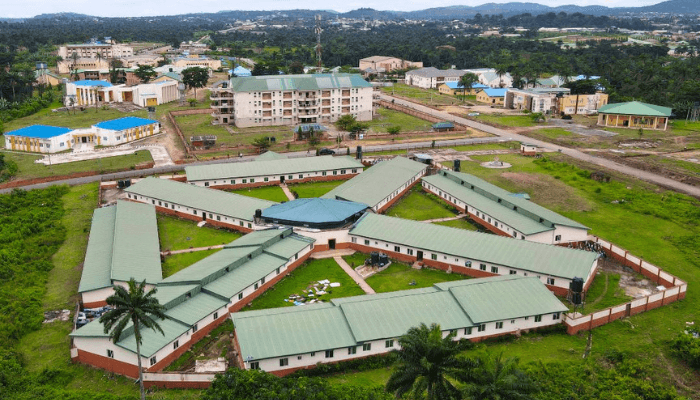The Public Sphere Has Disappeared in a Massive Upward Transfer of Wealth | Opinion
I’ve been a grassroots activist for over 35 years. l founded non-profits and funded them, served on their boards, and worked on projects including AIDS activism, racial reconciliation groups, anti-hunger and anti-poverty, established a campaign for a U.S. Dept. of Peace, produced The Sister Giant conferences introducing thousands of women to political activism, and created a Progressive Candidate Summit supporting Congressional candidates. From starting an organization that has fed over 18 million meals to homebound people with AIDS and other life-challenging illnesses, to visiting the slums of Kenya while attending a micro-credit conference on global poverty, my eyes have seen. Through those experiences, plus my work as a non-denominational spiritual leader addressing large groups as well as counseling individuals, I’ve known a lot of good people simply struggling to survive.
And at the same time, because I had become successful as an author and was living in L.A., I found myself exposed to some of the wealthiest, most powerful people in the world. I’ve traveled a few times on private planes and yachts. I’ve spent a night at the White House and a weekend at Camp David. I had the privilege of gaining that magic potion called “access.”
All of this gave me a unique perspective on America, having spent quality time among both the most advantaged as well as the least advantaged people among us. Over the years, the experiences of my life turned into one long “Aha!” moment. A light was gradually turned on in my mind, literally over a span of decades, as each experience added to my understanding: “Oh, this is how America operates…!”
Yet don’t get me wrong: None of this is about good people versus bad people. No socio-economic group has a monopoly on moral values. Not every rich person is a greedy bastard, and not every struggling person in the workplace is a working-class hero. But I’ve seen that all of us are at the effect of brutal systems, operating invisibly but with an ironclad fist.
Jamie McCarthy/Getty Images
More than anything, I witnessed firsthand—all of us of a certain age did, if we cared to look—the erosion of the public sphere, the transfer of huge amounts of wealth into the hands of a very few. Over four decades, the private sector thrived, while the public sector was left to wither.
My work as a spiritual activist gave me a front row seat from which to view the ravages that this transfer of wealth and power created in the lives of so many good people. Income inequality wasn’t an abstraction to me because it wasn’t an abstraction in the lives of people I encountered daily. It mattered less and less how much money was raised for a charitable cause, or even who we elected to office. Certain things never seemed to really change.
Non-profit activists would work and still work tirelessly to receive a $50,000 donation from some corporate foundation. We might even get a fancy lunch at which to make the ask! Then the corporation, or bank, or whatever it is, gets the PR benefit of sponsoring the fundraiser, while the government gives that same company subsidies to the tune of millions. It all looks lovely, till you look up close.
Several miles away from where that lunch takes place, neighborhoods have been destroyed, factories are shuttered, bullets ring out hitting children just trying to walk to school, the kids live with chronic fear and their parents with chronic stress, addicts and homeless people line the sidewalks—all while millions of good people do all they can to raise their children right, even in the midst of hell.
None of those problems came out of nowhere. They are the result, in far too many cases, of soulless public policy that is anything but here to serve the people.
And that’s why I ran for president.
The system I decry has a way of dealing with those who would challenge it. He who controls the narrative controls the world, and it isn’t hard, particularly with the media’s help, to get someone out of the game with a few well-placed lies and mischaracterizations, a few campaign infiltrators, or a few corrupt officials here and there. It’s not that hard in America today to make someone radioactive. The system will countenance no radical truth tellers or challenge to its authority. It has a way of keeping people in line.
Many of the institutional forces theoretically here to take on our larger problems are subsumed into the system. They won’t do anything to risk losing donors, or access to party or White House officials willing to schmooze them. Yet all of that is just smoke and mirrors. Ultimately you realize there’s no real difference between someone who won’t even return your call and someone who returns it as nothing but a courtesy.
Our system is Machiavellian. The cloaks and daggers would impress the Medici’s. And nothing will change it until we the people retrieve our honor and courage—so gaslit out of us, so worn down over time.
A friend of mine said to me recently, “Yeah, but we can’t afford to tear the system down. Something even worse will rise up and replace it.”
Absolutely, we mustn’t tear the system down. But one thing is very clear to me: If we don’t transform it, it will implode.
Marianne Williamson is a former candidate for president of the United States.
The views expressed in this article are the writer’s own.







